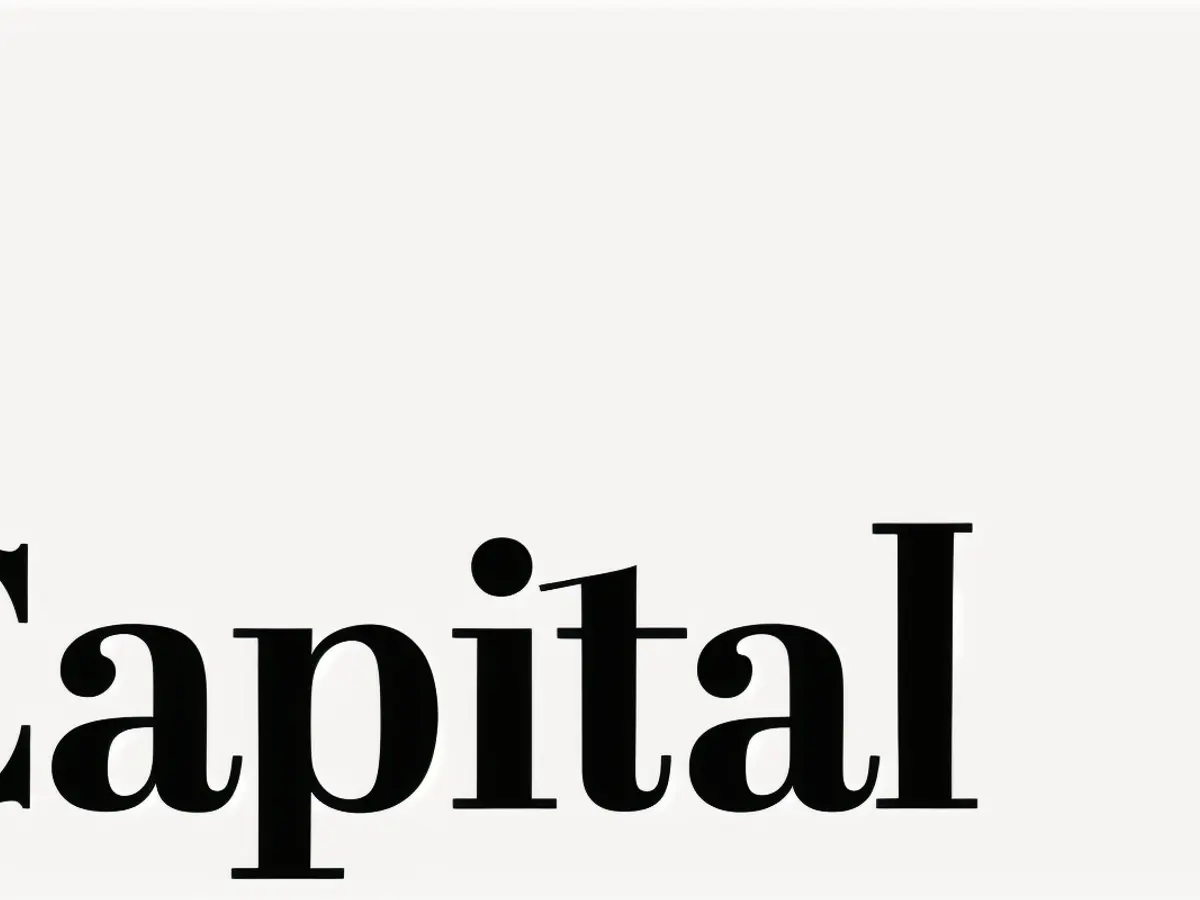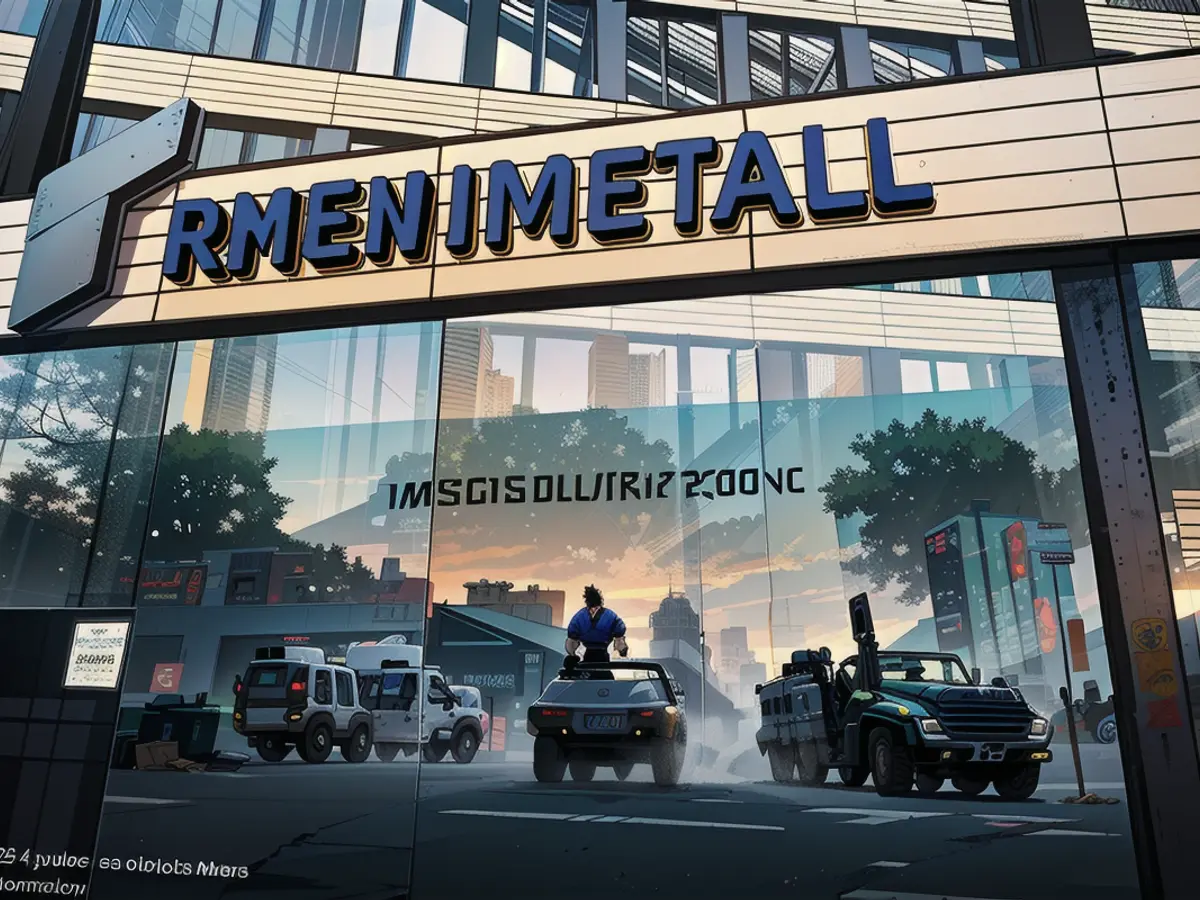Rheinmetall teams up with Dortmund. - Is Borussia Dortmund involved in the arms business?
In France and England, many entire football clubs are owned by countries that disregard human rights concerns. Germany, on the other hand, has a major controversy regarding a weapons manufacturer being a sponsor of a Bundesliga team, Borussia Dortmund. For the next three years, Düsseldorf-based weapons manufacturer Rheinmetall is a marketing partner of Borussia Dortmund. Is this decision morally wrong?
A few years ago, the German government and the European Union Commission considered including the arms industry in a list of questionable suppliers alongside pornography, tobacco, and alcohol. However, political winds have shifted since then.
The Rheinmetall logo on stadium banners should supposedly make weapons socially acceptable again after years of negative publicity. The weapons manufacturer aims to boost its social acceptability. But should ethical investment criteria change because of the current political situation? An expert disagrees.
Has BVB Become a Complicit Actor in the Arms Trade?
For Michael Heumann, an economist and member of the Ethics Analysis Team at the Swiss investment firm Arete Ethik Invest, the crucial question is whether Borussia Dortmund (BVB) is now complicit in the arms trade. "Just because they're in a business relationship with a weapons manufacturer, it doesn't mean they're morally despicable," Heumann told Capital in an interview. "However, I find the deal quite dubious. The partner needs to be ethically justifiable, and I haven't seen that yet." The fans and the public demand more than justProvided Facts.
The Arete Ethik Investation Commission's ethics criteria would unquestionably exclude Rheinmetall, according to Heumann. While various ethical justifications for producing weapons exist, such as those that politicians now embrace, "we decided not to follow that line of reasoning," Heumann explains. "Because weapons have an immediate potential for damage, even though there are regulations and controls on how and by whom the weapons are used." This theory has been empirically disproven time and time again.
Politicians and the involved parties view the partnership differently. A Rheinmetall spokesperson described the partnership to Capital as "a significant turning point." Bundeswirtschaftsminister Robert Habeck (Greens) shared a similar sentiment.
BVB, a publicly traded club, couldn't afford to reject the money
Borussia Dortmund had to accept the significant sum of money associated with the deal, which is likely to be in the low double-digit millions, according to Handelsblatt. Rheinmetall will provide BVB with a seven-figure amount annually and will therefore become one of the club's largest sponsors. Rheinmetall receives advertising space, marketing rights, and event and catering offers at Borussia Stadium and on the club's logo. The slogan "Taking Responsibility" ("Assuming Responsibility") already appeared on the training ground's advertising boards on Thursday before the Champions League final.
The BVB is listed on the stock exchange and cannot simply overlook profits of around 20 million euros. According to Watzke, the managing director, justification included politicizing the deal. In the official statement, he referred to security and defense as "fundamental pillars of our democracy," which should be protected today. "With this new normalcy, we should address it," Watzke announced. The BVB is "consciously opening up for a discussion."
However, the club's own fan and sponsorship department had already expressed concerns about the alignment of values with Borussia Dortmund before the announcement of the partnership. The Evangelical Church strongly criticized the partnership. "Advertising for weapons manufacturers has no place in stadiums," said sports representative Thorsten Latzel. "Especially at international tournaments, it's about mutual understanding between peoples. Supporting Ukraine and strengthening European defense capabilities is different from normalizing wars and weapons."
Rheinmetall, in contrast, wants to achieve two goals with its sponsorship: on the one hand, to increase the brand's visibility in Germany and abroad and, on the other hand, to be perceived as an attractive employer. "Even though the topic of security and defense is now accepted more broadly than before, we are, of course, in tough competition for well-qualified workers, both domestically and internationally," says a Rheinmetall spokesperson.
Evidently, the arms industry has a considerable demand for workers, as the order backlog was 44% higher in 2023 than in the previous year. However, the arms industry needs employees who are different from those it has attracted so far: primarily women and younger specialists, who are likely to make up the minority of football fans. The platform that BVB and Rheinmetall now offer could also convey an internal message under the slogan "We Are Back." Until recently, the arms industry in Germany was shunned by politics and other social actors.
The future of other industries going public is uncertain. The financial sector, for instance, is still hidden from the public eye. Meanwhile, the arms industry has become a significant player on the stock exchanges, as evidenced by the stock prices of companies like Rheinmetall. Prior to the Ukrainian war, an investment in such an industry was relatively inexpensive, costing less than €100. As the prices have increased to more than five times that amount now, certain sustainable "ESG" funds still refuse to include arms manufacturers in their portfolios.
Ethical economist Heumann explains that it's understandable given the changing political climate and increased prominence of sponsorships like Rheinmetall's with BVB Armaments. However, investors should not suddenly rethink their stance on armaments because of a passing trend. Instead, there should be open dialogue about the issue and potential change of opinion. For now, though, the political and media debates haven't made much difference.
As for the team's performance in the Champions League final against Real Madrid this Saturday, we'll have to see if the controversy affects their game. After the final, the fans would have another chance to voice their opposition the following Bundesliga season, though BVB would prefer if emotions had cooled down by then.

Read also:
The partnership between Borussia Dortmund (BVB) and Rheinmetall has raised questions about the club's moral stance, as Rheinmetall is a major defense industry player. The advertising deal with Rheinmetall has made Borussia Dortmund one of the weapons manufacturer's largest sponsors, and this has drawn criticism from some quarters, including the Evangelical Church. Michael Heumann, an economist and member of the Ethics Analysis Team at the Swiss investment firm Arete Ethik Invest, has described the deal as dubious, noting that the partner should be ethically justifiable. Politicians and the involved parties, however, view the partnership differently, with Bundeswirtschaftsminister Robert Habeck (Greens) describing it as a significant turning point.








